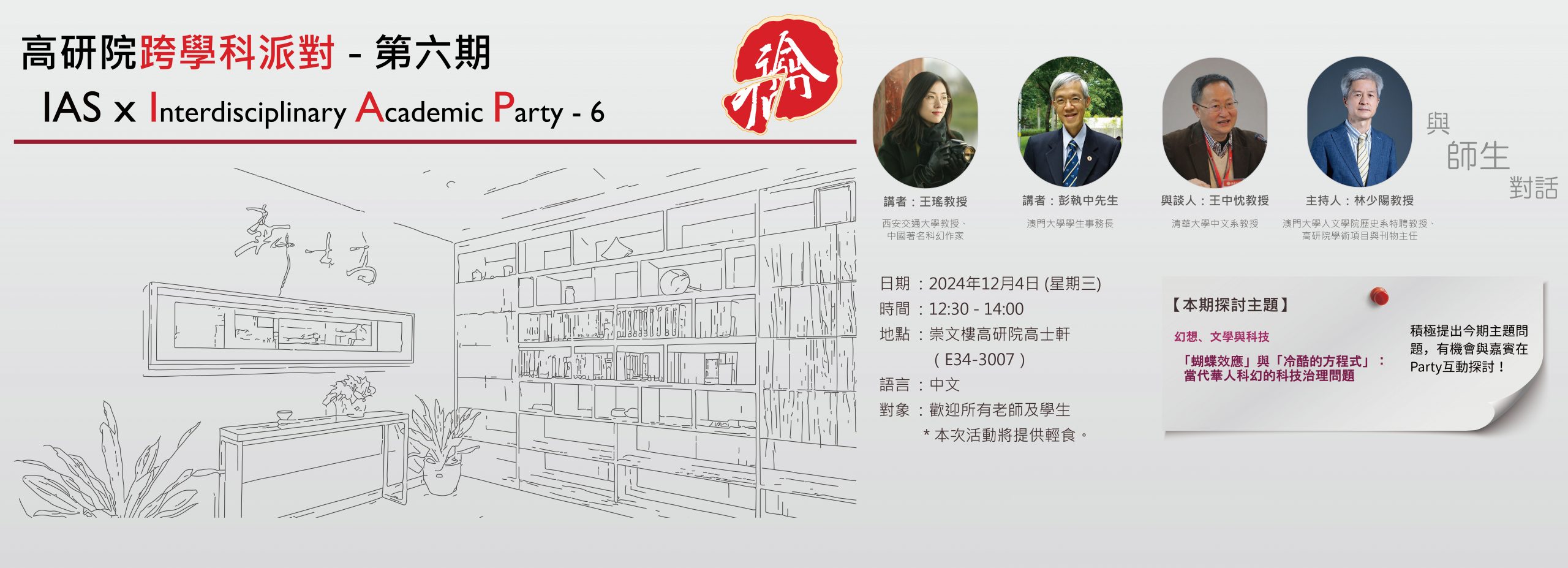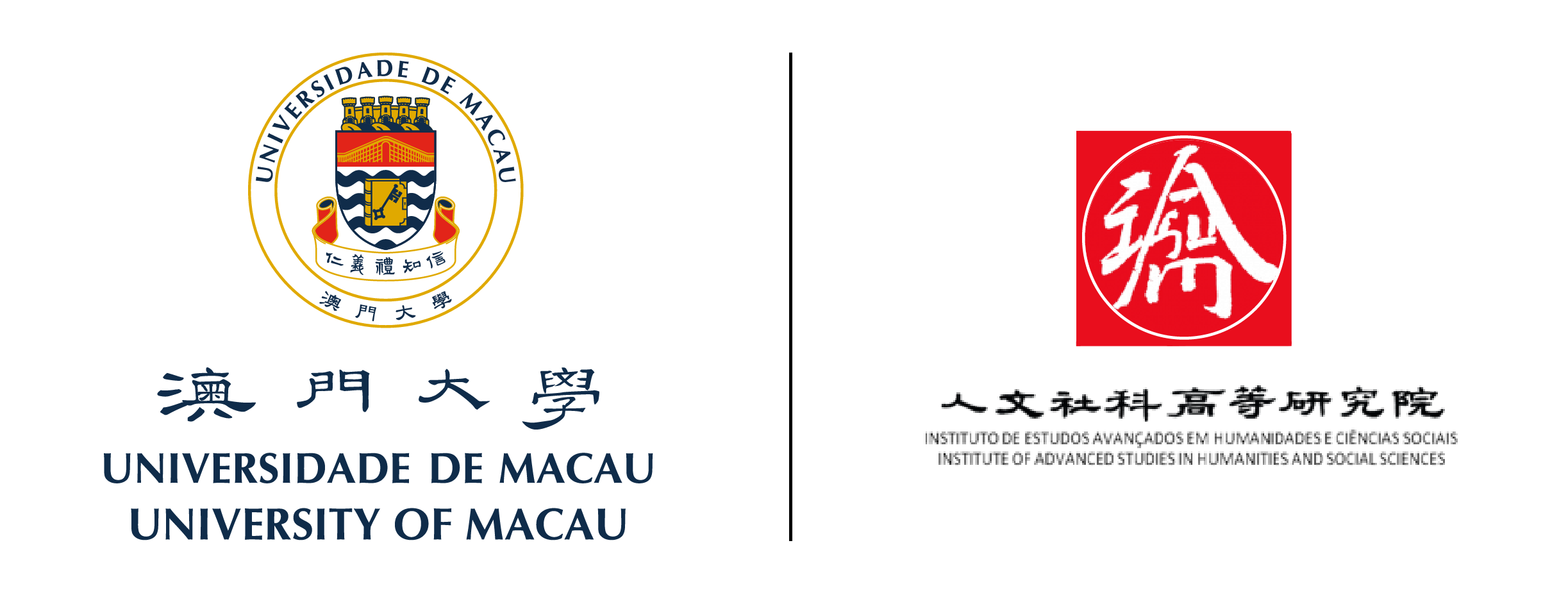
On December 4, the sixth session of the “IAS X Interdisciplinary Academic Party,” organized by the Institute of Advanced Studies in Humanities and Social Sciences (IAS) of the University of Macau (UM), was successfully held in the Common Room at the IAS in the Cultural Building. The theme of this session was “Fantasy, Literature, and Technology—The ‘Butterfly Effect’ and the ‘Cold Equations’: Issues of Technological Governance in Contemporary Chinese Science Fiction.” The event featured Prof. Yao Wang, also known as a Chinese science fiction writer, from Xi’an Jiaotong University, and Mr. Chapchong Pang, Paul, Dean of Students at the UM. The discussant was Prof. Zhongchen Wang from the Department of Chinese Language and Literature at Tsinghua University, and the moderator was Prof. Shaoyang Lin, Head of Academic Programme and Publication of IAS and Distinguished Professor of the Faculty of Arts and Humanities (FAH) at the UM.
Prof. Yao Wang introduced the concept of the “Butterfly Effect”, emphasizing that it is not only an environmental term but has also become part of popular culture. She analyzed the book Chaotic Butterfly by Cixin Liu, Meghaduta by Haihong Zhao, and The Cold Wind Blows Through by Zijun Chen, exploring the complex relationship between technology and humanity. She also pointed out that in the post-Cixin Liu era, Chinese science fiction should transcend binary oppositions and call for interdisciplinary imagination to address current challenges in the technological world.
Mr. Paul Pang approached the topic from the perspective of children’s literature, discussing the relationship between artificial intelligence and human morality. He noted that while technology is advancing rapidly, the enhancement of human moral values lags. He suggested that future AI should possess emotional capabilities to understand better and serve humanity.
Prof. Zhongchen Wang commented that the role of science fiction literature in inspiring thought and reflecting on society is becoming increasingly prominent. Especially in rapid technological advancement, science fiction has risen from a marginalized genre to a central position, which deserves our attention.
During the Q&A session, participants actively posed questions and discussed issues such as the impact of technology on human life and the relationship between science fiction and popular science. Attendees agreed that technology and the humanities should complement each other to jointly promote social progress.
Overall, the discussions sparked enthusiastic responses from faculty and students. This interdisciplinary party not only facilitated exchanges between literature and technology but also offered participants a chance to deeply ponder contemporary technological governance and humanistic concerns.







